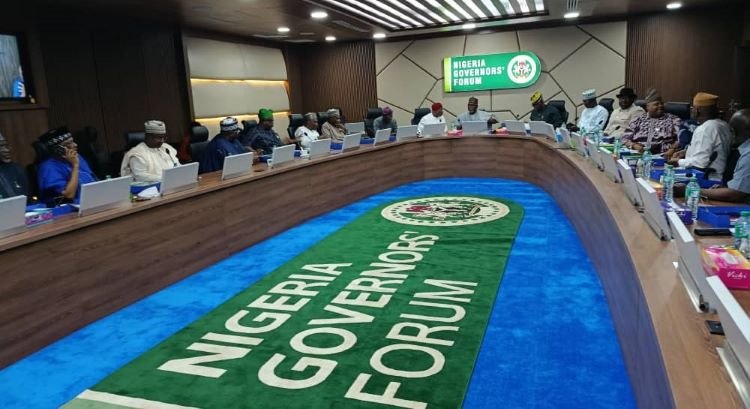NO fewer than 20 Nigerian states borrowed a combined N457.66bn in the first half of 2025, even as their monthly allocations from the Federation Account rose significantly, News Point Nigeria investigated.
The fresh borrowings sourced from both domestic and foreign creditors come against the backdrop of a soaring debt servicing bill, especially on external loans, which is tightening the fiscal space of state governments.
According to data from the Debt Management Office (DMO) and budget implementation reports, states spent N235.58bn on external debt servicing between January and June 2025. This represents an alarming 68.4% increase compared to N139.92bn expended in the same period of 2024.
Economists attribute the sharp rise to the depreciation of the naira, which has increased the cost of repaying dollar-denominated loans.
Figures from the National Bureau of Statistics (NBS) show that the Federation Account Allocation Committee (FAAC) disbursed a total of N10.13 trillion in H1 2025. States received N3.425 trillion, a 42.9% jump from the N2.396 trillion shared in the first half of 2024.
Despite this revenue boost, 20 states still turned to fresh loans to plug budget gaps.
Breakdown of State Borrowings:
Oyo State topped the list with a N93.4bn domestic loan.
Kaduna followed with N62bn (foreign loan).
Lagos borrowed N50bn domestically.
Other significant borrowings include:
Gombe (N20.3bn foreign)
Zamfara (N28bn foreign)
Katsina (N20.7bn foreign)
Kebbi (N7.4bn foreign)
Jigawa (N10.98bn foreign)
Bauchi (N26.3bn combined domestic & foreign)
Borno (N18.2bn foreign)
Taraba (N18.7bn foreign)
Sokoto (N15bn foreign)
Niger (N25.8bn foreign)
Kwara (N2.18bn foreign)
Ekiti (N19.8bn foreign)
Ondo (N5.6bn foreign)
Abia (N7bn foreign)
Ebonyi (N10.9bn foreign)
Enugu (N10.7bn foreign)
Professor Taiwo Owoeye, an economist at Ekiti State University, warned that states’ heavy dependence on foreign loans is unsustainable.
“Since most of the debts are dollar-denominated, every depreciation of the naira automatically inflates repayment obligations. States are forced to channel a larger portion of their revenues into debt servicing at the expense of development projects,” he explained.
He added that persistent borrowing could erode states’ financial autonomy:
“By mortgaging future federal allocations to meet debt repayments, states leave themselves with little fiscal room to respond to emergencies or invest in critical sectors like health, education, and infrastructure.”
Nigeria’s mounting subnational debt mirrors the federal government’s own rising obligations, sparking fears of a nationwide debt trap.







